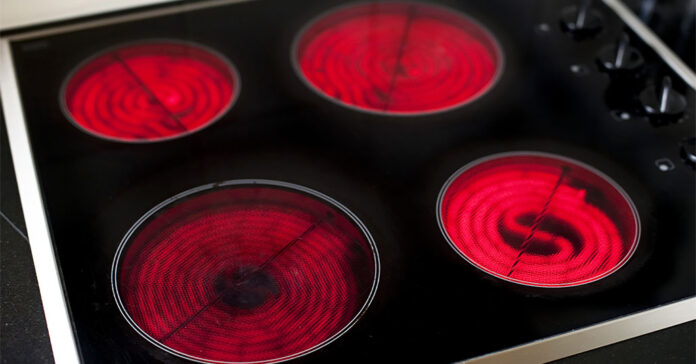Are you frustrated with the slow cooking times of your electric stove? In this article, we delve into the science behind electric stoves, explore the reasons why they heat up slowly, and discuss the impact of cookware on their performance. Discover whether gas stoves are generally faster, learn about the few serious drawbacks of electric stoves, and find out if there are any tricks to make them cook just a little bit faster.
- Why Do Electric Stove Tops Heat Up So Slowly?
- Do Electric Stoves Actually Cook Your Food Slower?
- What Boils Water Faster, a Gas Stove or an Electric Stove?
- Most Prevalent Cons Of Electric Stoves
- How Your Cookware Affects the Speed of Electric Stoves
- How Can I Make My Electric Stove Cook Faster?
- Making the Most of Your Electric Stove
Read more on the heated gas vs. electric debate here: Gas Oven vs. Electric Oven (Which One Is Better For You?). Save your time and money!
Why Do Electric Stove Tops Heat Up So Slowly?

Electric stoves have become a staple in many kitchens, providing a convenient and efficient way to cook our favorite meals. However, it’s no secret that electric stoves can be frustratingly slow when it comes to heating up. But why is this the case? To truly understand the science behind electric stoves, we need to delve into the inner workings of these appliances.
Why Are Electric Stoves Heating Up Slow? Unlike gas stoves, which rely on a direct flame to heat cookware, electric stoves use heating elements located beneath the surface of the stove. These heating elements are typically made of a coiled wire, which conducts electricity and produces heat when an electric current passes through it. When you turn on an electric stove, the heating element begins to heat up, rather slowly transferring that heat to the heating surface of the stove, and only then to the cookware placed on top.
One of the primary reasons electric stoves are slower than gas stoves is due to the way they distribute heat. Gas flames provide immediate and direct heat to the cookware, allowing for faster and more precise temperature control. In contrast, electric stoves take longer to heat up because the heating elements (most often heating coils) need some time to reach their desired temperature. This delay in heat transfer is one of the things that can result in longer cooking times and slower overall performance.
Moreover, the heat transfer in case of most electric stoves is indirect. This means that the heating element when heating up transfers the heat to the heating surface of the electric stove top, and only then the heat passes over to the dish that lies on top of the stove. This also makes the heat-up time longer than it is for gas stove tops.
Additionally, electric stoves have a slower response time when adjusting the temperature. When you turn the dial or press the buttons to increase or decrease the heat, the electric stove takes some time to adjust the power supply to the heating elements. This lag in response can further contribute to the perception of electric stoves being slower, if you for example try to adjust the stove top temperature from low to high at some point during cooking. It simply won’t work immediately.
It’s worth noting that the thickness and material of the cookware you use can also impact the speed at which an electric stove heats up. Cookware with a thicker base tends to distribute heat more evenly and efficiently, resulting in faster cooking times. Conversely, thin or poorly conducting cookware may take longer to heat.
Do Electric Stoves Actually Cook Your Food Slower?
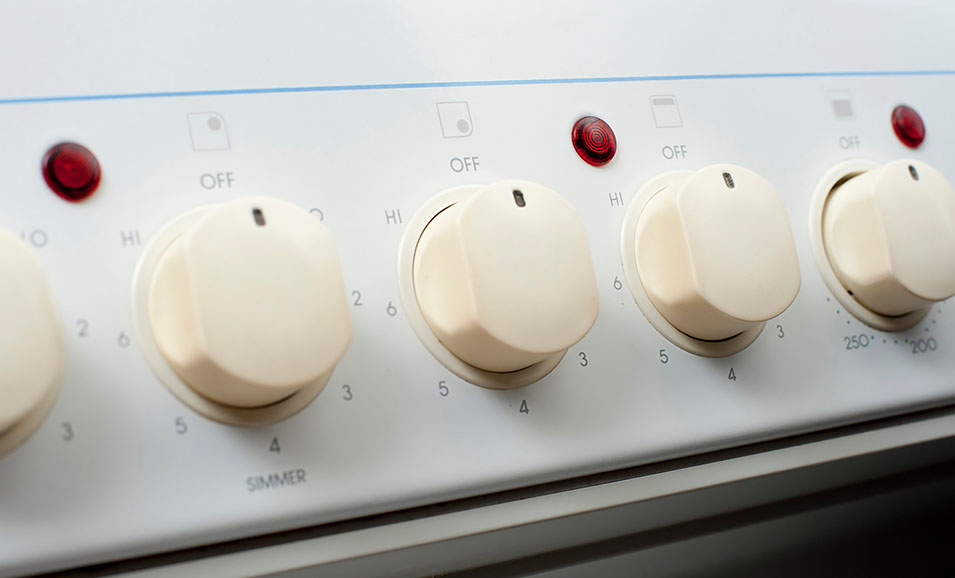
Well, as we’ve already established, the answer is yes, electric stoves do tend to cook slower than their gas counterparts.
To understand why electric stoves are slower, we need to look at how they work. Electric stoves use heating elements located beneath the cooktop to generate heat. These elements are usually made of a metal coil that heats up when an electric current passes through it. The heat is then transferred to the cookware, which in turn heats up the food.
The main reason why electric stoves are slower is because of the way they distribute heat. Unlike gas stoves, which provide an instant and direct flame, electric stoves rely on the transfer of heat from the heating element to the cookware. This indirect heat transfer takes longer to reach the desired temperature, resulting in slower cooking times.
It’s important to note that not all electric stoves are created equal. Some models may have more efficient heating elements or advanced features that can help mitigate the slow cooking times. However, in general, electric stoves do have a reputation for being much slower when it comes to cooking, compared directly with gas stoves.
So, if you’re someone who values speed and efficiency in the kitchen, you may find electric stoves to be a bit frustrating. However, it’s not all doom and gloom. There are certain steps you can take to make the most out of your electric stove and minimize the impact of its slower cooking speed at least a little bit. We’re going to talk about these in a short while.
What Boils Water Faster, a Gas Stove or an Electric Stove?
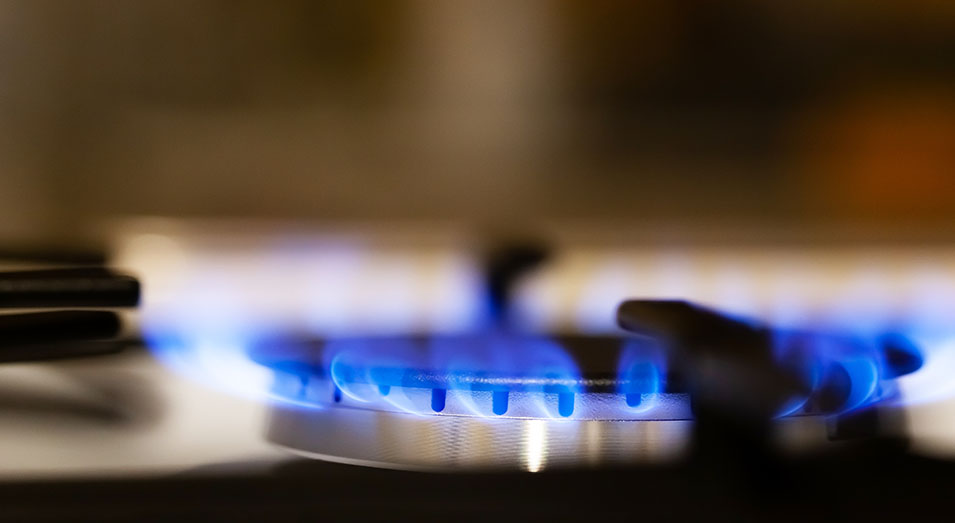
When it comes to boiling water, many people wonder whether a gas stove or an electric stove is faster. Well, gas stoves will generally always be a bit faster at boiling water due to the direct flame and immediate heat transfer. As the electric stove needs more time to heat up than a gas stove, so does the water.
The speed at which water boils on an electric stove depends on a few factors. One of the main factors is the wattage of the electric stove. Higher wattage electric stoves generally heat up faster and can bring water to a boil more quickly. Additionally, the size and shape of the pot or pan being used can also affect the boiling time. A wider and shallower pot covering the whole burner will heat up a little bit faster than a narrow and deep one.
It’s important to note that while gas stoves may have an initial advantage in boiling water, electric stoves have their own benefits. Electric stoves provide more consistent and even heat distribution, which can be advantageous for delicate cooking tasks such as simmering or melting chocolate. Gas stoves, on the other hand, can have hot spots and uneven heat distribution.
Check out also: Convection Oven vs. An Air Fryer (What’s The Difference?)
Most Prevalent Cons Of Electric Stoves
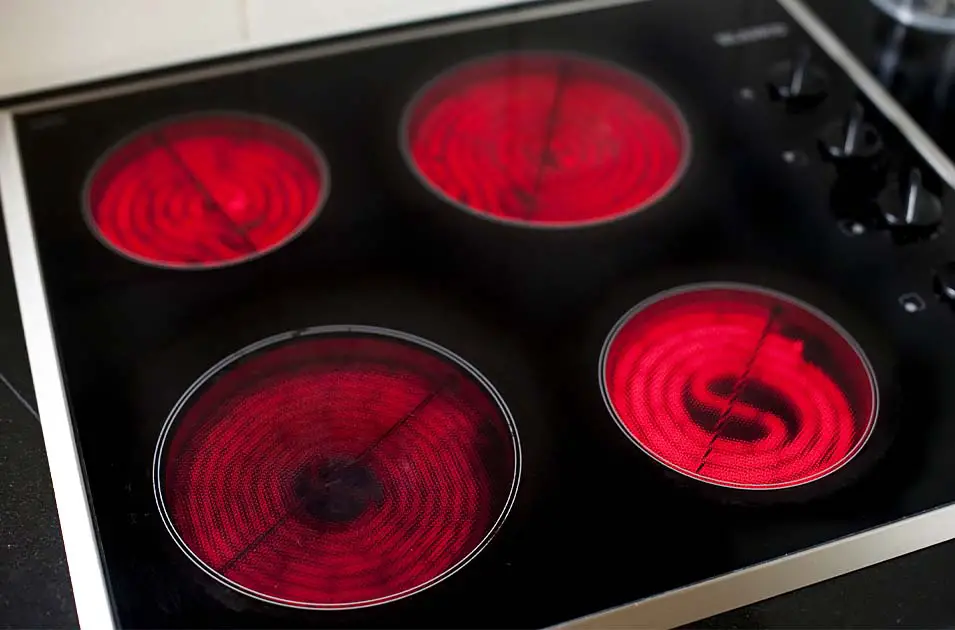
While electric stoves have their advantages, it’s important to acknowledge the most prevalent cons that come with using them. One of the main drawbacks of electric stoves is their slower heating time compared to gas stoves we’ve been talking about this whole article.
Another huge downside of electric stoves is their lack of immediate temperature control. Gas stoves offer a more immediate response when adjusting the heat, allowing for more precise cooking. Electric stoves, on the other hand, will always take quite some time to adjust to the desired temperature and this gives you much less control when preparing your meals.
Electric stoves retain heat for longer periods of time, even after they have been turned off. This in some cases can be a safety concern, especially if you have young children or pets in the house. Additionally, the smooth, glass-top surface of electric stoves can be easily scratched or damaged if not handled with care. The surface of gas stoves is in general a little bit more resilient to damage.
Another common complaint about electric stoves is their reliance on electricity. In the event of a power outage, you won’t be able to cook on an electric stove unless you have a backup power source. This can be a major inconvenience, especially if you often experience prolonged power cut-offs in your area.
Lastly, electric stoves are generally more expensive to operate compared to gas stoves. Electricity rates can vary depending on your location, but in general, gas tends to be a more cost-effective option for cooking when it comes to long terms cost calculations.
How Your Cookware Affects the Speed of Electric Stoves
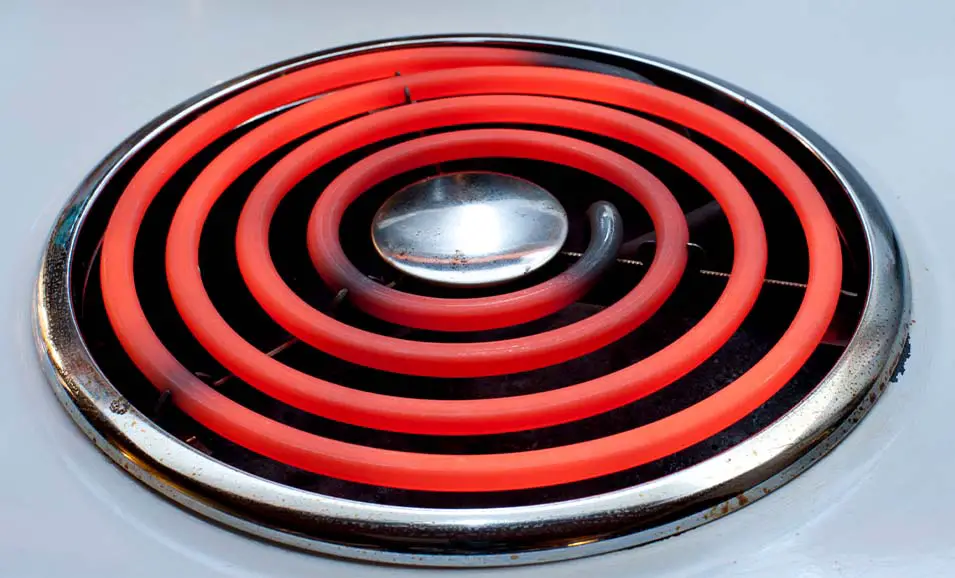
When it comes to cooking on electric stoves, the type of cookware you use can have a significant impact on the speed at which your food cooks. Different materials conduct heat differently, and this can affect how efficiently your electric stove transfers heat to your pots and pans.
One of the most important factors to consider is the type of material your cookware is made of, especially when you care about fast heat transfer from the cooking surface to your dish. Some materials, such as copper and aluminum, have excellent heat conductivity and can distribute heat evenly across the surface of the cookware. This means that your food will cook more quickly and evenly.
On the other hand, materials like stainless steel and cast iron are not as efficient at conducting heat. They tend to have hot spots and may take longer to heat up. However, once they do heat up, they can retain heat for longer periods, which can be advantageous for certain cooking techniques.
The size and shape of your cookware also play a role in how quickly your food cooks. Using a pot or pan that is too small for the electric heating element, or rather the final cooking surface on the stove, can result in uneven cooking and longer heat up times. Similarily, using oversized cookware can lead to more heat loss and slower cooking.
Additionally, the thickness of your cookware can affect cooking speed. Thicker pots and pans take longer to heat up but can provide more even heat distribution once they reach the desired temperature. Thinner cookware, on the other hand, heats up more quickly but may result in uneven cooking.
To optimize the speed of your electric stove, it’s recommended to choose cookware that has good heat conductivity, fits the size of the heating element, and has an appropriate thickness for the type of cooking you’re doing. Investing in high-quality cookware made from materials like copper or aluminum can help you achieve faster and more consistent cooking results on your electric stove.
How Can I Make My Electric Stove Cook Faster?
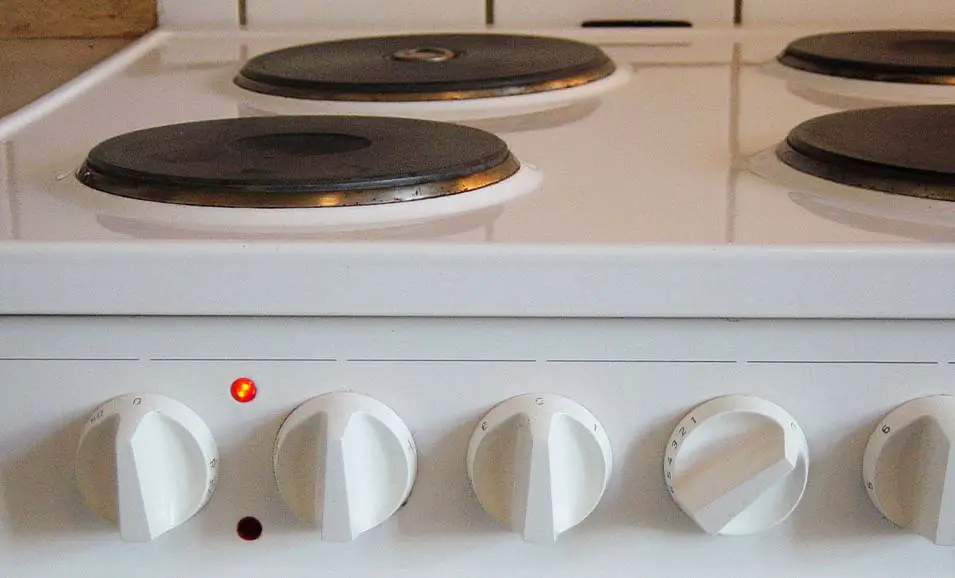
If you’re frustrated with the slow cooking speed of your electric stove, you may be wondering if there are any tricks or techniques to make it cook faster. Unfortunately, when it comes to electric stoves, there isn’t much you can do to significantly increase their cooking speed. Unlike gas stoves, which provide instant heat and precise temperature control, electric stoves take longer to heat up and cool down.
However, there are a few things you can try to optimize the cooking process and make the most of your electric stove:
- Use the right cookware: Choosing the right cookware can make a difference in how quickly your food cooks. Opt for flat-bottomed pans that have good heat conductivity. Materials like stainless steel, copper, and aluminum are known for their ability to transfer heat fast and distribute it evenly, allowing your food to cook quicker and more efficiently.
- Match the pan size to the burner: Using a pan that is too small or too large for the burner can result in heat loss causing slower heating up of the pan, and in turn – slower cooking. Make sure to match the size of your cookware to the size of the burner to ensure optimal heat transfer and distribution.
- Preheat your cookware: Preheating your cookware before adding ingredients can help speed up the cooking process at least a bit. Place an empty pan on the heated burner for a few minutes to allow it to reach the desired temperature before adding oil or food.
While these tips may not drastically reduce the cooking time on your electric stove, they can help optimize the cooking process and ensure that your meals are cooked as efficiently as possible.
Making the Most of Your Electric Stove
In conclusion, while electric stoves may have a reputation for being slower compared to gas stoves, there are several factors that contribute to this perception.
It is clear that electric stoves do cook slower due to the nature of their heating elements and the time it takes for them to heat up. However, this doesn’t mean that we can’t work around it and still achieve delicious meals.
While electric stoves may have their limitations when it comes to speed, they offer several advantages such as precise (albeit not instant) temperature control and ease of cleaning of the flat burner surface.
By understanding the science behind electric stoves, being mindful of cookware choices, and implementing a few cooking techniques, we can make the most of our electric stoves and still enjoy delicious meals!
You might also like: 14 Expert Tips On Kitchen Design – All The Things You Need To Know


